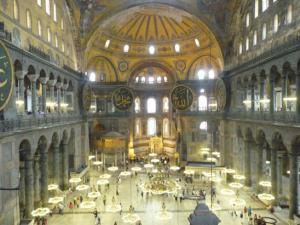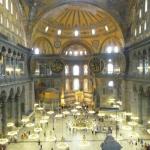 Belief in miracles is ubiquitous in the West, but many Christian academics are shamed faced about their commitment. If God has acted out of His personal will, then it means that not all of the past will be explainable without the knowledge of that Divine will. It might even present an insuperable barrier to understanding exactly how past events occurred. If God used divine power to open the Red Sea, then no scientific account that relies only on natural forces will ever be able to account for that fact of history. There will be a temptation to deny the fact, if only to preserve the theoretical completeness of our knowledge.
Belief in miracles is ubiquitous in the West, but many Christian academics are shamed faced about their commitment. If God has acted out of His personal will, then it means that not all of the past will be explainable without the knowledge of that Divine will. It might even present an insuperable barrier to understanding exactly how past events occurred. If God used divine power to open the Red Sea, then no scientific account that relies only on natural forces will ever be able to account for that fact of history. There will be a temptation to deny the fact, if only to preserve the theoretical completeness of our knowledge.
My colleague J.P. Moreland in his Kingdom Triangle has argued against this “thin view” of reality that is closed to the supernatural. He defends the possibility of a reasonable person using the miraculous and the prophetic in his daily life. The reaction of part of the Christian community was illustrative of the point.
Evidently, many fear that allowing for the possibility of miracles in the present world will automatically lead to accounting everything (or at least far too many things) to Divine agency. However, this is surely an overreaction. Materialistic explanations are good, so far as they go, and I am not about to abandon them, because some have turned them into a basis for materialism. In the same way, Divine agency, which is after all merely a form of the personal agency that forms the basis of many causal explanations, can be abused, but need not be abandoned.
In historic events such as the Flood, Christians may have to be content with showing that there is evidence outside of the pages of Sacred Scripture that it took place, but never being able to give a fully naturalistic account of how it too place. What is needed is a good means to recognize acts caused by an agent from those not caused by an agent. How could we, at least in principle, tell if an event had been done, in the distant past, by an agent (even one other than God) as opposed to natural causes?
The work of William Dembski and others may be a good first step in this direction for some types of questions in biology, but it is only a step. Christians will want to press general design arguments further and look for the actions of the God of the Bible in His creation. A good Christian will do with an open philosophy of science that is not closed to the ability of God to act directly in space and time.
This is a controversial idea to many modern people, including many Christians.
Must a theist always prefer any naturalistic answer (however improbable) to any appeal to divine agency (however likely given his other beliefs)? I think not unless we believe that theism and also Christianity are so much on the intellectual defensive that we cannot take any of our religious beliefs as true based on other religious beliefs for which we have stronger external evidence.
This will weaken our apologetic about the truth of Biblical events such as the Flood to nonbelievers only if we have accepted the dubious notion that we can convince a man to be a theist only by showing him that everything God did can be explained without recourse to His power!
However the Christian organizes his ideas, it must provide ample opportunity for the Divine to provide information and insight. In a culture that is rightly impressed with a certain kind of information (the factual or scientific) it is easy to underestimate the importance of another kind of aid to rational thinking: the motivating framework. We are in need of an epistemology that does always put us on the defensive.
This is especially true when it comes to thinking about science and Christianity. Too often the Bible is treated as a story, but science is treated as the truth. It is not post-modern to suggest that all human attempts to deal with reality are a form of story telling; indeed it is precisely and gloriously pre-modern! This does not mean that just any old story will do
Though not right about everything, Plato expressed a proper understanding of what science does when he said:
“If we can furnish accounts no less likely than any other we must be content, remembering that I who speak and you my judges are only human, and consequently it is fitting that we should, in these matters, accept the likely story and look for nothing further.”
We are too often captives of an epistemology of skepticism that can never fit well with our faith
Based on a presentation at Loma Linda University and at the College at Saint Constantine.











